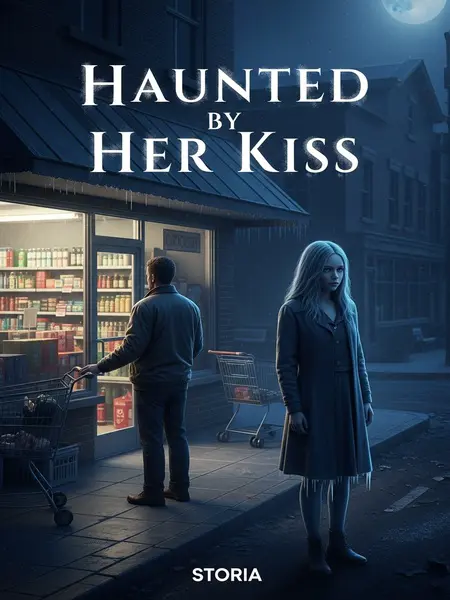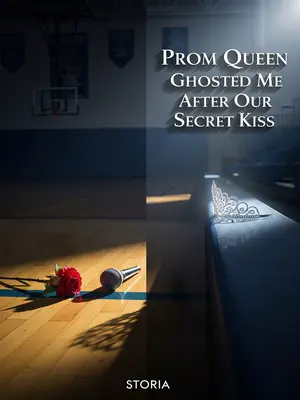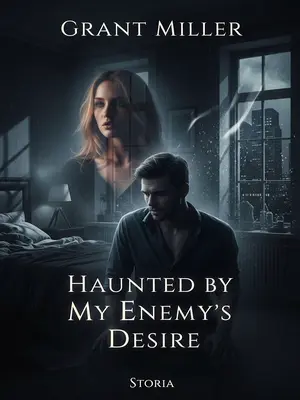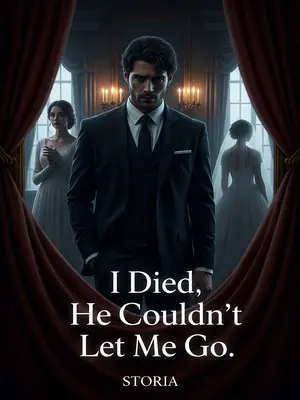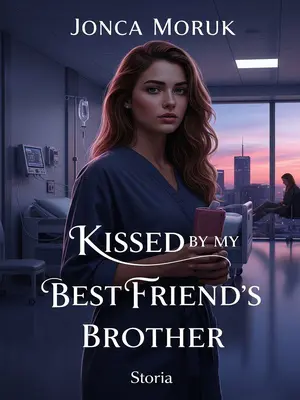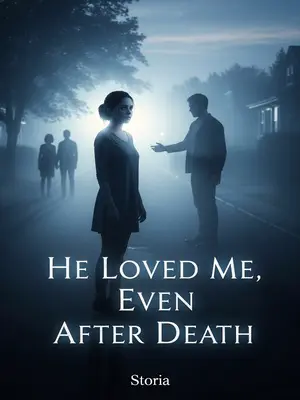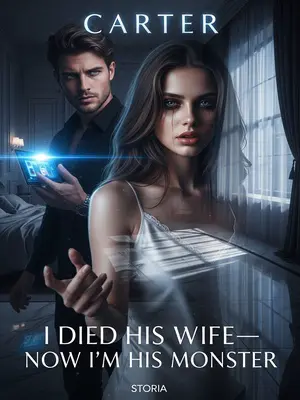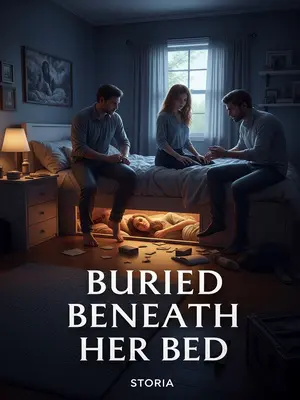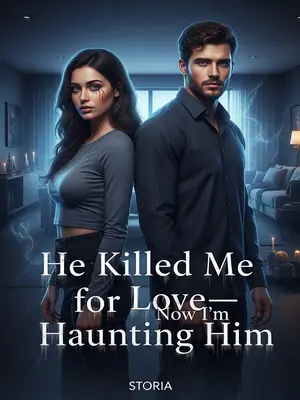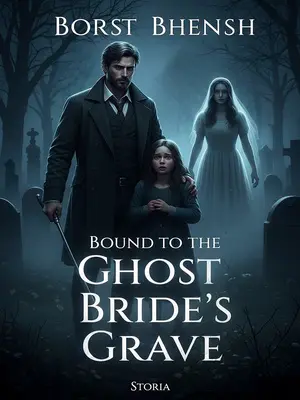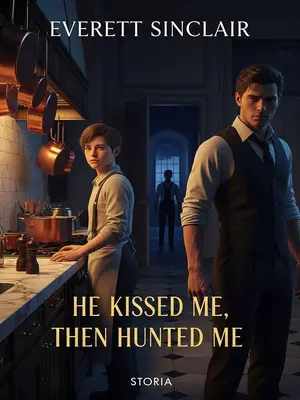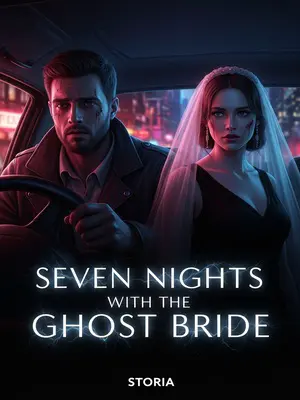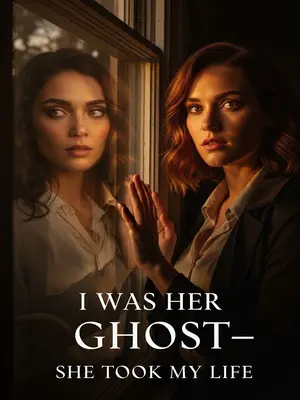Chapter 1: The Bridge at Night
My uncle once had a guide dog—a dog that was never officially certified, but he loved it like family.
He always made it sound like just another chapter in his life, but I remember how proud he was when Buddy first trotted through our battered screen door, wearing a hand-stitched blue harness. The afternoon sun caught the dog’s golden fur, lighting him up like an angel. Buddy might not have been official, but my uncle talked to him as if he’d been sent from heaven just for him.
People around here like to call guide dogs heroes, but honestly, not everyone can handle raising one. Golden Retrievers and Labs aren’t that expensive by themselves, but the training? That’s what really hits your wallet. If you want a dog as well-trained as the ones you see on TV, raised by real pros from a puppy, you’re talking at least twenty grand.
That kind of price makes even folks with steady jobs shake their heads. Most people can’t just drop that kind of money. So you hear stories at church potlucks or in Facebook groups—someone’s cousin tried to train a dog at home, or people passing the hat at a fundraiser. Everyone dreams of a loyal dog at their side, helping them cross the street, navigate life. But the reality? Money talks, even when it comes to good dogs.
Most guide dogs around here are only partly trained. My uncle’s golden was like that—he got him as a two-month-old pup, sent him for a little training at a local center, and still ended up spending over three grand.
He pinched pennies for months, skipped new shoes and cable, just to give Buddy a shot at being his eyes. When Buddy came back from training, he had a shiny new collar and a cheap certificate with his name in blocky letters. Nothing fancy, but it made my uncle’s eyes mist up every time he touched it.
At first, it was good. My uncle was blind, and Buddy helped him a lot. But after just two years, something awful happened. One night, as my uncle was coming home, crossing the old Maple Heights bridge, Buddy got distracted—started playing and led him right off the side, straight into the river below.
It was one of those foggy, heavy nights where the air sticks to your skin. People heard the splash but figured it was a raccoon or maybe a deer. By the time anyone realized what had happened, it was too late. Emergency lights lit up the bridge, blue and red strobing over the water as they pulled him out. Buddy’s frantic barking echoed through the mist for hours.
That’s how my uncle drowned. The family was gutted. At the memorial, they grabbed the dog and beat him nearly to death. He howled and tried to run, even with a broken leg. I stood on the porch, frozen, watching. When Buddy limped toward me, everyone screamed at me to stop him.
The porch sagged under the weight of old flowerpots and busted lawn chairs, the kind of place where you could smell fried chicken and motor oil all at once. The porch light glared down, bugs swarming the bulb. My aunt’s voice cracked as she yelled, grief curdling into rage. Buddy stumbled on the steps, blood on his paw, eyes wide and desperate. I’d never seen a dog look so human—so lost.
I wanted to step in, but when I saw the tears in Buddy’s eyes, I just couldn’t do it.
For a split second, I saw myself in that dog: helpless, wishing someone would just let me go. My hands shook at my sides, but I couldn’t raise them. Grief does strange things. Even now, sometimes, I can’t tell if I was right or just weak.
I wanted to scream at them to stop, but the words stuck in my throat. Part of me wanted to run, to hide from the ugliness, but another part whispered that I was just as much to blame for letting it happen.
The family let me have it, cussing me out, pointing fingers in my face. I wanted to say, his leg was already broken—just let him go. But I couldn’t, because my uncle was gone, and nothing could bring him back.
The kitchen window glowed behind me as voices rose, hot and mean. My cousin Tommy jabbed his finger at my chest, spit flying. I tried to meet their eyes but couldn’t hold the anger there. The only thing I could hear was Buddy’s whimper, echoing through the screen door.
You’d think that would be the end, but after my uncle died, Buddy still went to the bridge every day. He’d sit by the riverbank, waiting, like he thought his owner might come back.
Rain or shine, Buddy limped down the cracked sidewalk, past the old gas station and the stop sign with peeling paint. People started to notice—the postman, the mail lady, the teenagers by the convenience store. They’d see him there, staring at the water, day after day. Loyal, or maybe just lost.
People who didn’t know thought it was a sweet story—like Hachiko, that famous dog from Japan. But those who knew what happened felt sick, like the dog was pouring salt in our wounds.
The town started whispering, stories growing with every telling. Someone left a bowl of water by the bridge. An old lady crocheted a blue scarf for Buddy when winter came. But inside our house, the pain twisted deeper—every mention of that dog reopened the wound, every kind act from strangers felt like a slap.
That bridge was on my way to work. Every time I passed, Buddy would limp over, wanting to play. He’d grown up in our house—he knew me well. He’d come to my side and whimper, hoping for something to eat.
Some mornings, I’d see him before sunrise, paws wet with dew. He’d nuzzle my knee, tail wagging slow and hopeful. It was like he remembered backyard barbecues and Christmas scraps under the table—memories that cut both ways.
But how could I feed him? If I did, how could I face my uncle’s memory?
Sometimes I’d grip my lunch bag tighter, pretending not to see him. The guilt followed me home, heavy as a winter coat. Some nights I couldn’t sleep, haunted by Buddy’s empty stomach and my uncle’s old smile.
I worked at a small grocery store and had to clear out old Cup Noodles and hot dogs from the clearance bin all the time. In the break room, with a faded Packers magnet on the fridge and a stack of old People magazines, I’d boil the noodles and toss them to Buddy. Or throw him hot dogs—always stuff past its date, ready for the trash.
Mrs. Ramirez, the store manager, would just mutter, “Better a dog than the dumpster.” The break room always smelled like burnt coffee and instant noodles, steam fogging up the cracked window as I snuck leftovers into a brown paper bag. Buddy waited by the alley, wagging his tail at the sound of my boots on gravel.
I figured, since nobody else cared for him, if he died from eating junk, it wasn’t on me.
Sometimes I told myself it was just practical—feeding a stray, nothing more. But in the small hours, the excuses didn’t help. Maybe it was mercy. Maybe cowardice. The lines blurred after a while.
Whenever he finished eating, he never followed me. He just limped back to the riverbank and whimpered at the spot where my uncle drowned.
He’d watch me leave, eyes full of questions I couldn’t answer. Then he’d turn back to the river, sitting as still as a gravestone. Some folks say dogs forget, but I knew better. Buddy remembered everything.
Anyone who’s had dogs knows they’re smart. They can put on an act. Buddy—honestly, he was good at faking it.
Sometimes I wondered if he was playing us, using those sad eyes and limp for sympathy. But maybe he was just as broken as the rest of us—both of us going through the motions, hoping someone might finally forgive us.
One time, I had a mountain of warehouse work and stayed late. By the time I left, it was past eleven.
The parking lot was empty, the fluorescent lights buzzing overhead. I pulled my jacket tight and checked my phone—one bar left, no new messages. The kind of night where your breath comes out in clouds and every sound makes you jump.
My store was close to home. When I reached the old bridge, I saw Buddy still standing at the bridgehead.
His silhouette looked ghostly in the river mist, fur matted and dirty. I shivered, wishing I’d driven instead of walked.
When he saw me, he started barking—sharp and angry, not his usual whimper.
Not his usual greeting, but a mean, almost warning bark—loud enough to make me step back. For a second, I wondered if he even recognized me.
I tried to approach. “Buddy, move out of the way.” But he bared his teeth, ready to bite if I got any closer.
His lips curled back, eyes wild. I’d never seen him like this, not even after my uncle died. I hesitated, a knot of fear in my chest.
I got mad fast. This dog had eaten so much from me, and now he was blocking my way home?
After all I’d done for him, this was the thanks I got? My fists clenched, and my patience snapped like a twig.
I kicked him. He was already lame and couldn’t dodge, so he whimpered and moved aside. But when I tried to walk past, he bit my pant leg and wouldn’t let go.
I yanked at my jeans, feeling his teeth clamp down. The fabric stretched, and I nearly lost my balance, cursing under my breath. The street was dead quiet except for our struggle.
I got frustrated and kicked him a few more times before he finally let go.
My kicks echoed off the bridge pylons. Buddy finally released me, limping off to the side, but he watched me with a look I couldn’t quite name—anger, maybe, or desperation.
I glared at him and stepped onto the bridge—only to see a figure up ahead.
There, just beyond the streetlight’s reach, stood a girl. Her red dress looked too bright for a night like this, the color catching the last of the lamp’s glow.
She wore a long red spaghetti-strap dress, the hem trailing on the ground. Her skin was so pale it almost glowed.
The river below was black as oil, the only sound the low croak of bullfrogs and the distant rumble of a train crossing town. Her hair hung loose, the breeze pushing it across her face. She didn’t shiver, but I felt a chill anyway.
As I got closer, I saw her face was bloodless. She spoke softly, asking if I could walk her home, saying she was too afraid of the dog to cross the bridge.
Her voice was a whisper, almost lost to the night. Up close, her eyes reflected the streetlight but didn’t really see me. She clutched her purse like a lifeline.
Was she pale from fear? Or maybe cold, standing out here alone in a dress like that. I rubbed my arms, suddenly aware of my work shirt and tired eyes.
I tried to sound reassuring, like someone who’d handled rowdy dogs his whole life. “It’s okay, that dog barks a lot, but he used to be a guide dog. He never bites. See, I just kicked him a bunch and he still didn’t dare bite me?”
But the girl insisted she couldn’t go across, her voice trembling. “Please, I’m scared… I can’t do it alone.”
Seeing she was truly scared, I just nodded—what else could I do? I offered her my arm. She took it, her hand ice-cold, like she’d just come in from a Wisconsin blizzard. Together, we started across the bridge, our footsteps muffled by the mist rolling in from the river.
When we got back to Buddy, Buddy, who’d never bitten anyone before, suddenly went wild—lunging at the girl, barking in a way I’d never heard. Before I could react, he snapped at her.
The bark was deeper, almost feral. Buddy launched himself, snapping at the hem of her dress. The girl shrieked, stumbling behind me, clutching my arm in a death grip.
Startled, I quickly kicked Buddy away. He rolled on the ground, struggled to get up, and limped toward the girl again.
The noise was jarring in the quiet night. Buddy’s claws scraped the pavement as he tried to get to her, growling low in his throat. It was chaos—me, the girl, and a crazed dog at midnight.
The girl was terrified, hiding behind me and trembling. When her hand touched my shoulder, it was ice-cold, no trace of warmth.
She pressed herself close, breath coming in shallow gasps. I could feel her fear pulsing through her hand, colder than the river breeze.
The more I thought about it, the angrier I got. This dog really didn’t know gratitude. If it weren’t for me, it would’ve starved long ago. Now, if word got out he bit someone, the locals would beat him to death.
In a panic, I broke off a tree branch by the bridge and whipped Buddy hard, yelling at him to get lost.
There was an old willow by the water. I snapped a thin branch, the wood stinging my palm. “Go on, get!” I shouted, swinging at Buddy’s flank. The sound echoed sharp and ugly through the dark.
Buddy whimpered twice, finally ran away after being beaten, but kept looking back, unwilling to go far.
He paused at the edge of the parking lot, tail tucked, head low. Even as he disappeared into the shadows, his eyes never left me.
Afraid he’d bother the girl again, I sighed and told her I’d walk her home.
I glanced back, feeling a pang of guilt, but turned to the girl. “Let’s get you home,” I said. She nodded, still shaking, and we headed down the road, Buddy’s shadow trailing us for a while before vanishing into the night.
As we walked, I apologized, saying Buddy really didn’t bite people and I didn’t know why he’d acted so crazy. Maybe he’d been wild too long after being cast out.
“I’m so sorry about him,” I said as we walked. “He’s usually good with people. Maybe being out here on his own… it’s just made him skittish.”
The girl still didn’t dare speak, so I walked with her along the road. The only sound was our footsteps on the cracked asphalt. Somewhere, a frog croaked by the river. The world felt smaller than usual, hemmed in by darkness and silence.
The midnight sky was especially dark, with no streetlights anywhere. The girl was so scared that her cold little hand gripped mine tightly. I glanced at the ground—it was so dark, we couldn’t even see our shadows. A night like this really wasn’t safe for a girl to walk alone.
My heart thudded in my chest, both protective and uneasy. I squeezed her hand gently, trying to reassure her. Every now and then, a passing car’s headlights would sweep across us, making both of us blink against the glare.
When we got to her home, it was an old house by the river—probably an old neighborhood that hadn’t been torn down yet, a shabby one-story place.
The siding was peeling, porch sagging. There was a rusted mailbox and a faded metal lawn chair tipped over in the weeds. A floodlight buzzed above the door but didn’t quite cut through the gloom.
She opened the door and asked if I wanted to come in for a while. I said no, I needed to get home and rest.
I hesitated, but the memory of Buddy’s attack—and the day’s exhaustion—weighed on me. “Thanks, but I should get going. Long day.”
Seeing I was being polite, she didn’t insist. She lingered in the doorway, voice barely above a whisper. “If you have time, could you walk me home again tomorrow? I… I don’t want to run into that dog alone.”
I still had inventory to check and would likely be working late, so I agreed.
“Yeah, sure,” I said, trying to sound casual. “I’ll probably be working late again, but I can walk you home.”
Only then did the girl go inside, but she didn’t close the door, just left it half open. I wanted to close it for her, but she told me not to—let the air in, she said.
The porch light flickered overhead, and the door creaked as she left it ajar. “Please, leave it open,” she murmured. “It gets stuffy in here.”
I said okay and led Buddy away.
Buddy had crept back into the shadows, watching me. I whistled low, and he limped after me, wary but obedient. Together, we walked down the empty street.
Looking back, I saw the girl turn on a dim, old incandescent bulb inside. She stood behind the half-open door, peeking out at us.
Her silhouette flickered against the yellow glow, watching us like a nervous animal. The house felt older than time, creaking with every gust of wind.
I raised my hand and knocked Buddy on the head, saying, “Quit causing trouble. See how scared that girl is? She keeps staring at you.”
He ducked his head, tail drooping. I tried to sound stern, but my voice wobbled. “Don’t make a scene, Buddy. You’re scaring her.”
With the girl gone, Buddy wasn’t fierce anymore—just circled around me, wagging his tail.
He looked up with hopeful eyes, tongue lolling, waiting for a scrap or a pat. It was like he’d never barked or bitten, just a tired old dog longing for home.
I knew he wanted food. I sighed. I hadn’t planned to feed him—he always bared his teeth and blocked my way—but seeing he had no one else, my heart softened again. I took two hot dogs from my pocket and fed him.
He gulped them down in seconds, licking my fingers. I patted his head, trying to ignore the guilt twisting in my gut.
I also told him not to bite people again. Around here, dogs that bite people get put down.
“You gotta be careful, boy,” I muttered. “You bite someone else, and you’re done for. No more chances.”
I went home and slept. The next day at work, I saw Buddy squatting by the river again. Whenever someone passed by, he wagged his tail and stuck out his tongue—nothing like the fierce dog from last night.
Mrs. Ramirez watched him from the store window. “That’s a sweet old thing,” she said, shaking her head. “Doesn’t look like he’d hurt a fly.” I just shrugged and kept stocking shelves.
Looks like the old folks were right: animals are wild at night, but much tamer during the day.
My grandma always said, "Night turns all creatures strange." That morning, Buddy looked like any other stray, begging for scraps and love under the bright July sun.
That night after work, I went to the bridge again. Buddy came over barking wildly, and I impatiently kicked him away. At the bridge, the girl was still waiting.
The moon was full, hanging low over the river. Buddy’s bark echoed across the water as I hurried past him, nerves jangling.
Sure enough, she was blocked by Buddy again.
She hugged her arms close, eyes wide. Buddy paced between us, growling under his breath.
I smiled at her, and she nodded shyly, then came over and took my hand.
Her touch was hesitant at first, then firmer. Her hand was still cold, but I barely noticed, distracted by the thrum in my chest.
Although her hand was cold from fear, my heart couldn’t help but race. After all, this was the second time she’d held my hand. I’m always buried in work and don’t have much contact with girls.
A flush crept up my neck, the kind you try to hide when you’re not used to girls paying you any mind. I glanced at her, heart doing somersaults.
This time I sneaked a look at her—she was so pale and pretty. I especially liked her slender shoulders under the straps, but I didn’t dare look for long.
Her hair shimmered in the moonlight, and the dress clung to her frame. For a moment, I wondered what she saw in a guy like me—someone with callused hands and grocery store blues.
I didn’t fantasize about being a hero rescuing a beauty. This girl was truly beautiful, and what was I? Just a grocery store worker—how could a regular guy like me hope to match someone like her?
I scuffed my sneaker on the pavement, embarrassment burning in my gut. This wasn’t a movie, and I sure wasn’t the leading man.
While I was thinking this, Buddy suddenly barked and lunged again. The girl hugged me in fright, the soft feeling making me dizzy.
Her arms wrapped around me, face buried in my chest. My pulse jumped, head spinning—half from fear, half from something else.
Instinctively, I put my arm around her shoulder. She didn’t resist, letting me hold her. I quickly kicked Buddy twice to make him go away.
He yelped, backing off, but his eyes stayed locked on the girl. It was like he was warning me, or maybe begging for help. I couldn’t tell which.
Buddy stopped biting at the girl and instead bit my pants, refusing to let go, as if he didn’t want me to walk her home.
The tug-of-war felt almost comical, if it hadn’t been so tense. I shook my leg, whispering, “Let go, Buddy. Enough already.”
I had to tap his nose twice. A dog’s nose is sensitive—he whimpered and ran away.
He slunk into the bushes, head hanging. I felt a twinge of regret, but the girl squeezed my hand, grounding me in the moment.
I took the girl onto the riverside path. Only then did she realize I was holding her shoulder, and she shyly lowered her head, softly thanking me.
Her cheeks turned pink, eyes flickering away. “Thank you,” she whispered, voice barely there. I smiled, awkward but proud.
I tried to calm my pounding heart. This time, I chatted with her a lot along the way.
I told her about my job, about Mrs. Ramirez’s endless stories and the time I almost got locked in the freezer. My nerves faded with every step.
She said her name was Lillian and she worked at a nearby textile plant.
Lillian. The name rolled around in my head, warm and familiar. She smiled, just a hint, when she said it.
I said my mom also worked at a textile plant, but how come her hands were so delicate for a textile worker? She explained she was an accountant at the plant.
She held up her hands, palms soft. “Numbers, not machines,” she laughed. The sound was light and sweet, like windchimes on a porch.
Lillian’s dress was very long, dragging on the ground as she walked. I felt sorry for such a pretty dress.
Each step left a dark smudge on the red fabric. I kept glancing down, half-wanting to pick it up, but not sure if it was polite.
When I walked her to her door, she invited me in again.
She leaned against the frame, eyes searching mine. The invitation hung between us, tempting and uncertain.
I was tempted, thinking there might be a chance for something to happen, so I wanted to go in and chat.
I hesitated, heart racing. The porch creaked under my feet, the promise of something new thrumming in the air.
But as soon as I stepped inside, Buddy in the distance went crazy, charging over and actually biting me this time.
A blur of gold fur and bared teeth—pain shot up my leg as Buddy’s jaws clamped down. I shouted, tripping over the threshold, panic rising.
My leg hurt badly and I yelled for him to let go. Lillian was so scared she hid inside the house.
I stumbled, trying to kick Buddy off, but he wouldn’t release me. Lillian’s scream rang out, muffled by the old screen door.
Buddy bit my leg and started shaking his head, tearing at me. I punched him several times in panic, but he wouldn’t let go, dragging me out the door.
I felt hot blood trickling down my calf, sock soaking through. The pain made my head spin. Buddy dragged me into the yard, grass slick with dew and my sweat.
Lillian cried out, asking if I could find a way to get rid of the dog.
Her voice was frantic, high and sharp. “Please, please, just make him go away!”
Anger blazed inside me.
Every kindness I’d shown him flashed through my mind, replaced by fury. My hands shook—not just from pain, but betrayal.
For a second, I thought I’d hallucinated it—this was Buddy, the dog I’d fed for months. But the pain was real, and so was the shock.
I never thought the dog I’d been feeding would turn on me. That cold feeling…
It was like all the warmth had drained from the world. My jaw clenched tight as I tried to shove him away.
I almost wanted to kill him.
For a split second, I understood the rage that had flared in my family at my uncle’s funeral. That red, blinding anger. My fists curled, itching for revenge.
I limped away from Lillian’s house, glaring back at Buddy. The dog saw I was about to beat him and ran away in fear.
He slunk into the shadows, tail between his legs. I spat into the grass, biting back curses as I staggered home.
I went home, fuming. My parents saw my injury and quickly asked what happened.
My mom rushed over, grabbing a towel and pressing it to my leg. Dad hovered in the doorway, face drawn and worried.
I didn’t mention Buddy, because I knew if I did, he’d be put down.
I couldn’t bear the thought of him dying for what he’d done, not after everything. So I bit my tongue, swallowing the truth.
So I said I was bitten by a stray, making my mom curse angrily.
Mom started cussing up a storm, stomping around the kitchen. My dad poured a shot of bourbon, hands shaking.
I sat on the bed, determined to send Buddy away.
The ache in my leg was nothing compared to the ache in my chest. I scrolled through my phone, pulling up the Golden Retriever rescue center’s website, fingers trembling.
I contacted the Golden Retriever rescue center where I’d gotten Buddy, asking if they could keep him for a while and help find someone kind to adopt him.
Their receptionist sounded tired but kind. “We’ll take him in, see what we can do,” she promised. “He’s got a record with us, so we’ll make sure he’s safe.”
They agreed, but until he was adopted, it would be fifty bucks a day for food and boarding. I complained that even feeding a person didn’t cost that much, but they insisted that was the price for a dog.
The bill made me wince. “Fifty a day?” I groaned. “For a dog? He’s not eating steak.” But the woman just laughed, “That’s the standard. He’ll be well looked after.”
I had no choice but to agree and told them to pick up Buddy the next morning.
I gave them directions to the bridge. “He’ll be waiting,” I said. “He always is.”
After the call, my mom came in with iodine to disinfect my wound and insisted I go to the hospital for a rabies shot, afraid the stray might have been sick. I just nodded—what else could I do?
The iodine burned, stinging as she dabbed at the wound. She helped me into the car, fussing like I was ten again. “No arguing—you’re getting the shot,” she said. I just nodded, too tired to fight.
On the way, I thought of Lillian and asked my mom if she knew her from the textile plant. She said she did.
Her answer was casual, distracted. “Sure, there was a Lillian—pretty, quiet. That was years ago though.”
I asked if she knew about Lillian’s family background. She said it wasn’t good—very poor.
Mom sighed, eyes flickering to the road. “They had it rough. House down by the river, if I remember right.”
That made me feel relieved… Well, Lillian’s family did live in that kind of old house.
A weird sense of comfort washed over me. Maybe she really was just a regular girl, not out of my league after all.
I know it’s not right to judge a girl by her family background, but I was afraid—afraid I’d fall for her and people would say a loser like me could never land a girl like her.
I told myself not to get carried away, but hope flickered anyway. Maybe things could be different for me this time.
The next day, Buddy was taken away. They asked for a five hundred dollar deposit. I felt bad but paid it, telling them to send me a video of Buddy every day so I’d know he was being well cared for.
The rescue worker texted a photo of Buddy curled up on a threadbare blanket, eyes closed. I stared at the screen for a long time, heart heavy. “Just keep him safe,” I messaged back.
That night, I went to see Lillian again.
I wore my cleanest shirt, nerves prickling. The river smelled like wet leaves and old secrets as I waited by the bridge.
She was waiting for me by the bridge and looked happy when she saw me, saying she hadn’t run into the dog today.
She smiled, relief lighting up her face. “I was afraid to come out, but he’s really gone.”
I said, don’t worry, the dog’s been sent away—it’s miles from here now.
I tried to sound confident. “He’s at a rescue center. Won’t be back.”
Only then did Lillian relax and walk with me.
Her steps grew lighter, her smile less guarded. She looped her arm through mine, and for the first time, I didn’t feel so alone.
I was a little embarrassed, saying it felt like a date.
I laughed, voice a little shaky. “Guess this is the closest I’ve been to a real date in a long time.”
She suddenly took my hand and said she was treating it like a date.
She squeezed my fingers, her touch gentle but insistent. “It is a date,” she whispered, and my breath caught in my throat.
I was overjoyed, feeling light all over. It had rained that day, and the riverside path was muddy. I saw her skirt dragging on the ground and wanted to help lift it, but she grabbed it and wouldn’t let me touch it.
The hem left a trail in the mud. I reached for it, but she pulled away, laughing softly, a strange tension in her eyes.
I was a little embarrassed and said I wasn’t being a creep.
I held up my hands, smiling sheepishly. “Promise, I just didn’t want your dress to get dirty.”
Just as I said it, Lillian suddenly lowered her head and kissed my forehead.
The kiss was cool, her lips barely brushing my skin. The world spun for a second, everything going quiet but for the river’s slow current.
Cool and happy.
My heart did somersaults. I wanted to freeze that moment, bottle it forever—the taste of rain, the cool touch of her lips, the impossible hope blooming inside me.
My heart was pounding—this was the first time a girl had kissed me.
My hands shook, knuckles white around her fingers. I’d never felt so alive, so wanted and terrified at once.
She giggled and said, “I know you’re not a creep. You’re a good person.”
Her laughter was sweet, echoing through the empty street. The compliment landed heavy in my chest, warm and strange.
When we got to her house, Lillian invited me in.
She lingered in the doorway, eyes bright. “Come in, stay a while?” she asked, voice soft and full of promise.
With Buddy gone, I finally entered her home.
The house smelled faintly of old wood and river water. The floorboards creaked under my weight as I stepped inside.
She poured me a glass of water, said she’d take a shower first, and I sat on her chair, listening to the sound of water in the bathroom, thinking about her kiss and feeling flustered.
I sipped from the cloudy glass, my hands slick with sweat. The shower ran in the background, the pipes rattling and sputtering. My mind ran wild with what-ifs and maybes.
I was so nervous I swallowed hard, drank several sips of water, and finished the glass.
The cool water helped, but I couldn’t shake the jitters. My foot tapped a nervous rhythm on the faded linoleum.
Maybe I was too nervous. I secretly texted my mom: “Mom, do you think Lillian is pretty?”
My thumb hovered over the send button, embarrassment warring with excitement. I hit send, half-expecting her to tease me.
My mom quickly replied, saying she was on night shift, and that there were pictures of Lillian at the plant—she was pretty.
Her response came fast. “She was beautiful—everyone thought so. You really like her?”
I was embarrassed and messaged again, saying I liked her and wanted to date her.
My cheeks burned as I typed, “Yeah, I really like her. She kissed me. Think she’d want to go out with someone like me?”
She stepped out of the bathroom, steam curling behind her, and for a moment I almost forgot where I was. My phone buzzed again, snapping me back to reality.
She’d changed into a spaghetti-strap nightdress, the skirt still very long, her wet hair draped over her shoulders, and she sat down next to me.
Her skin glistened with water droplets, hair slicked to her neck. The nightdress clung to her curves, the fabric whispering as she moved.
I didn’t dare look at her. She asked what was wrong.
She tilted her head, concern knitting her brow. “Are you okay?”
I lowered my head and whispered, “You’re really pretty.”
The words came out in a rush, my face flaming. I stared at my shoes, afraid to meet her gaze.
She laughed, then suddenly cupped my face and asked if I’d ever been in a relationship.
Her touch was cold but gentle, her eyes searching mine. “So, have you ever been with anyone before?” she asked, teasing and kind.
I really blushed and softly said yes, not knowing why my head felt dizzy and my vision was going dark.
The room tilted. I blinked, trying to focus. “Yeah… I have, but not like this. Not…” My words trailed off as the world spun.
Just then, my phone vibrated. It was a message from my mom.
I fumbled in my pocket, the phone slipping from my sweaty hand. The screen glowed bright, cutting through the haze.
I struggled to pick up my phone and saw my mom had written: “What are you talking about? If she were still alive, she could be your grandmother.”
Confusion prickled at the back of my neck. I stared at the message, not understanding.
I didn’t react at first, then saw she’d sent a photo.
My vision blurred, but I managed to tap the photo open. The edges were yellowed and creased.
It was a yellowed black-and-white photo of a group of people. At the top it said, “1980 Maple Heights Textile Plant Group Photo.”
Rows of faces, all frozen in time. The photo smelled faintly of dust and old stories, even through the screen.
In the corner stood a young, pretty girl who looked exactly like Lillian.
Her eyes stared out, bright and unchanging. The dress was different, but the face was hers—down to the dimple in her left cheek.
I stared blankly at the photo, then looked up at Lillian.
She was sitting too still, watching me with an expression I couldn’t read. The air felt thick, electric.
She stared at me with a bloodless face, while my head grew heavier and I slumped toward the floor.
My limbs felt numb, leaden. The edges of the room blurred as I struggled to keep my eyes open. Lillian’s gaze bore into me, cold and endless.
Only then did I see, even though the light was on in the room, there was no shadow of Lillian on the ground…
The realization chilled me to the bone. Her form glowed, but the patch of floor beneath her was empty—no shadow at all. My heart hammered wildly, panic blooming too late.
I felt it was getting harder and harder to breathe, my eyes opening and closing with difficulty, only able to see Lillian grabbing my feet and dragging me out.
She moved with inhuman strength, fingers like ice around my ankles. My head lolled to the side, vision going black at the edges.
She looked so frail, but was very strong, dragging me out the door in no time.
My back scraped the doorway, shirt catching on a rusty nail. I wanted to scream, but my voice wouldn’t come.
She dragged me toward the river.
The world spun past—grass, pavement, the whisper of wind through the reeds. The river glimmered ahead, dark and bottomless.
The icy river water soaked me, making me suddenly very alert, but my body just wouldn’t respond.
My mind screamed, but my muscles wouldn’t obey. The cold rushed in, burning, shocking me awake for one terrible second.
The water sometimes covered my face, making me choke again and again, the pain unbearable.
I gasped for air, coughing and swallowing river water. My throat burned, vision narrowing to pinpricks of light.
Lillian stood beside me, suddenly grabbing my face and pressing me into the water.
Her hands were iron, unyielding. I saw her face above me, features twisted and strange, red dress billowing like blood in the current.
I wanted to struggle, but I had no strength, only able to let the river swallow me, my vision going black again and again.
The world faded in and out. My lungs screamed, body numb. I thought of my uncle, Buddy, all the wasted chances. Everything went dark.
Suddenly, the sound of a dog barking broke through.
A frantic, desperate bark—louder than thunder, closer than memory. The sound yanked me halfway back to the world.
Lillian, who was pressing on my shoulder, let out a miserable scream. She suddenly flung me aside and ran toward the shore.
She moved faster than human, her voice warping into something inhuman. I tumbled in the shallows, gasping.
Only then did I see Buddy appear at my side, soaking wet, biting my clothes and dragging me hard toward the bank.
He looked wild and heroic, fur plastered to his skinny frame. His teeth latched onto my jacket, muscles straining as he pulled me to safety. I clung to his neck, sobbing and coughing.
I coughed painfully several times, spitting out a mouthful of water, still reeling from what had just happened.
My lungs burned, throat raw. Buddy circled me, whining, nudging my face with his cold nose. The night was silent again, but everything felt different.
Lillian’s photo… Why was it from 1980?
My mind spun, chasing impossible answers. Could she really be…? No, it didn’t make sense. None of it did.
And what did my mom mean? She said if Lillian were still alive, she could be my grandmother. Did she mean Lillian was already dead?
I stared at the phone clutched in my hand, water dripping from the screen. My heart hammered as Buddy nudged me, barking softly.
Buddy anxiously whined at my side, bumping me with his head again and again.
He wouldn’t leave me alone, pacing in tight circles. I reached out, wrapping my arms around his neck, burying my face in his wet fur.
I could only pat his head, panting as I stood up. I didn’t understand why Buddy was here—he should have been at the Golden Retriever rescue, miles away.
My knees trembled, but I forced myself to my feet. Buddy’s presence was the only solid thing left in the world, grounding me.
But I didn’t have time to think. I could only limp along with the lame dog, both of us hobbling toward the bridge.
Each step was agony, but Buddy stayed close, nudging me along. I focused on the rough wood of the bridge under my feet, counting the planks as we crossed.
Maybe the moon was covered by clouds, but as I ran, the night grew even darker, almost pitch black.
The air felt thick, heavy with secrets. Every sound seemed amplified—the slap of water, the rasp of my breath, Buddy’s uneven footsteps.
I could only vaguely see the bridge ahead, my mind blank, just knowing I had to run.
Fear propelled me forward, adrenaline drowning out the pain. Buddy pressed ahead, tail low but determined.
But as I ran, I felt something was wrong…
The darkness behind us was too deep, the air too still. A shiver crept up my spine, and I realized our ordeal wasn’t over yet. Something unseen followed us—a memory, a curse, or maybe just the river’s cold grip refusing to let go…
Behind us, the river whispered my name. And in the darkness, I knew—some things don’t let go, no matter how hard you run.
